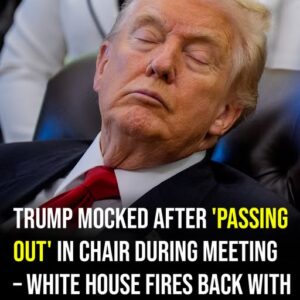Lawmakers in Congress are preparing to review a new crime bill proposed by the White House as President Donald Trump continues his campaign to reduce crime in Washington, D.C.
President Trump announced on Wednesday that he intends to send a legislative package to Congress. This initiative aims to strengthen public safety in the nation’s capital and serve as a model for other major cities.
Details of the proposed legislation are limited. However, the White House emphasizes that the bill will address violent crime, support local law enforcement, and improve infrastructure in key areas.
President Trump expressed confidence that Republicans in Congress will largely support the initiative. “We believe Democrats will not act decisively to combat crime, but Republicans will support it almost unanimously,” he said during a media briefing.
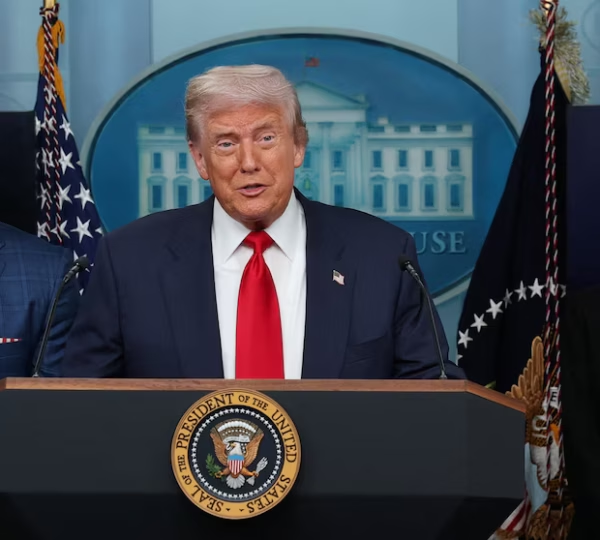
The proposed package may include a modest allocation of funds aimed at repairing streets and enhancing public safety measures throughout Washington, D.C.
Senator Lindsey Graham (R-S.C.) confirmed he had discussed the matter with President Trump, Attorney General Pam Bondi, and White House staff to determine how Congress can assist in improving safety in the city.
Attorney General Bondi stated that the Department of Justice will collaborate closely with local police, federal law enforcement, and Congress. The goal is to reduce violent crime and protect all residents and visitors in Washington, D.C.
The White House has indicated that a package will soon be sent to Congress, specifically to Senators Lindsey Graham and Katie Britt, who chairs the Homeland Security appropriations subcommittee.

This initiative, called the D.C. Security Fund, aims to provide resources needed for better policing, infrastructure improvements, and overall safety in the capital.
President Trump and Republican leaders argue that increasing support for law enforcement will create a safer, more livable city. They hope it will set an example for other cities struggling with crime.
The form of the legislation is still under discussion. It could be incorporated into an existing spending bill or introduced as a standalone supplemental measure.
Congress is currently in recess and is expected to return after Labor Day. Lawmakers will then face the Sept. 30 deadline to fund the federal government, creating a tight window for reviewing the proposal.
President Trump also seeks to extend his authority over D.C. police operations. His current control is temporary, limited to 30 days unless Congress grants an extension.
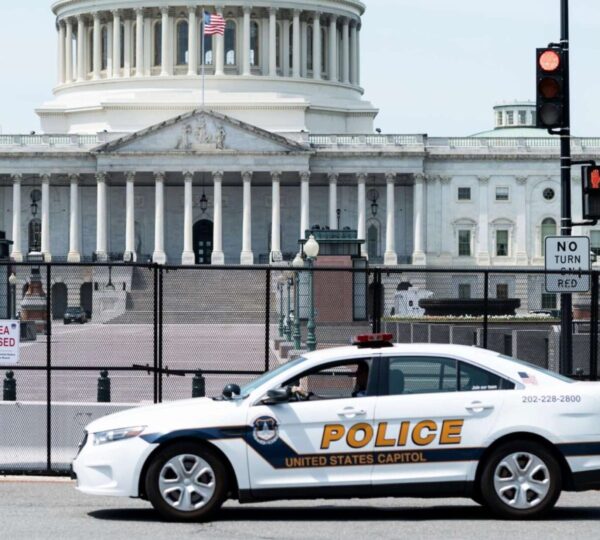
Republicans are largely in favor of extending the president’s control to address crime, but any extension requires a joint resolution with at least 60 Senate votes.
Democrats have indicated that they are unlikely to support extending federal authority over local law enforcement, citing concerns over overreach.
This disagreement may delay or alter the implementation of the proposed crime bill. Analysts predict negotiations will be challenging due to partisan divisions.
Local officials in Washington, D.C., have expressed cautious optimism. They acknowledge the need for resources but emphasize the importance of local oversight in policing matters.
Community leaders have called for balanced solutions that improve safety without undermining civil rights.
President Trump maintains that federal involvement is necessary to tackle rising violent crime rates and to ensure safety for residents and visitors alike.
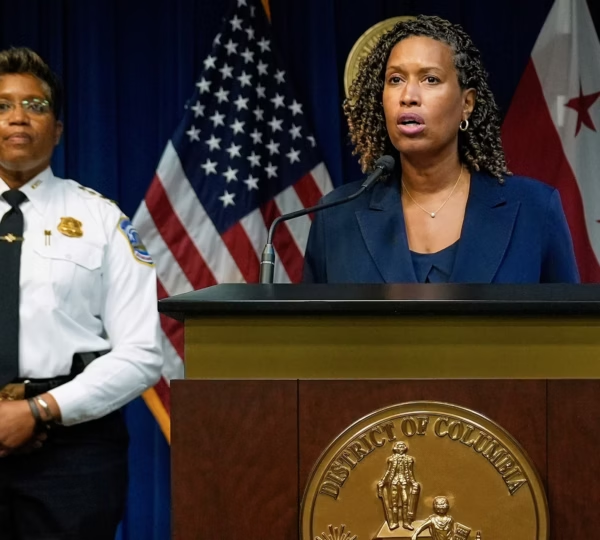
The administration claims that the initiative will also focus on improving streets, parks, and public spaces, helping create a cleaner and safer urban environment.
Republican lawmakers argue that funding this initiative is crucial for restoring public confidence in safety and law enforcement in the nation’s capital.
Democrats remain skeptical, questioning the necessity of extending presidential authority and preferring solutions driven by local governance.
The coming weeks will be pivotal as Congress debates funding priorities, safety measures, and the scope of the federal role in local law enforcement.
If passed, the D.C. Security Fund could provide a framework for other cities seeking federal support to combat violent crime and improve public safety.
Public opinion is divided. Some residents welcome additional resources for law enforcement, while others express concern about federal oversight in local policing.
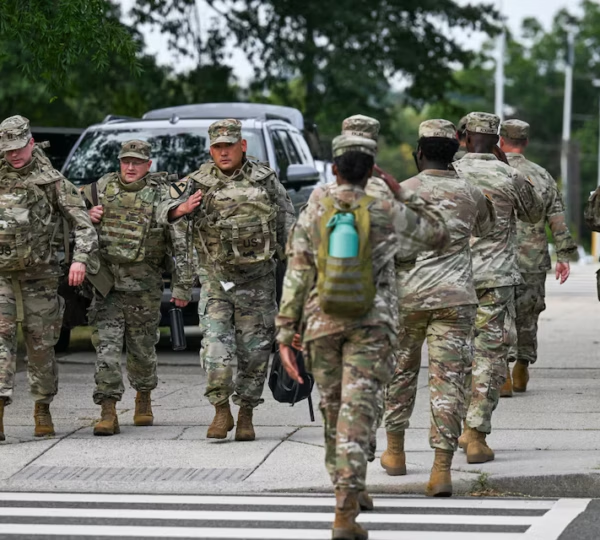
Ultimately, the outcome will depend on congressional negotiations, political compromise, and public reaction to the proposed measures.
President Trump has reiterated that his administration is committed to making Washington, D.C., safer and believes that bipartisan support can make the initiative successful.
The coming debate in Congress will determine whether this crime bill becomes law and how it may shape the future of public safety in the U.S. capital.
Lawmakers in Congress are preparing to review a new crime bill proposed by the White House as President Donald Trump continues his campaign to reduce crime in Washington, D.C.
President Trump announced on Wednesday that he intends to send a legislative package to Congress. This initiative aims to strengthen public safety in the nation’s capital and serve as a model for other major cities.
Details of the proposed legislation are limited. However, the White House emphasizes that the bill will address violent crime, support local law enforcement, and improve infrastructure in key areas.
President Trump expressed confidence that Republicans in Congress will largely support the initiative. “We believe Democrats will not act decisively to combat crime, but Republicans will support it almost unanimously,” he said during a media briefing.

The proposed package may include a modest allocation of funds aimed at repairing streets and enhancing public safety measures throughout Washington, D.C.
Senator Lindsey Graham (R-S.C.) confirmed he had discussed the matter with President Trump, Attorney General Pam Bondi, and White House staff to determine how Congress can assist in improving safety in the city.
Attorney General Bondi stated that the Department of Justice will collaborate closely with local police, federal law enforcement, and Congress. The goal is to reduce violent crime and protect all residents and visitors in Washington, D.C.
The White House has indicated that a package will soon be sent to Congress, specifically to Senators Lindsey Graham and Katie Britt, who chairs the Homeland Security appropriations subcommittee.

This initiative, called the D.C. Security Fund, aims to provide resources needed for better policing, infrastructure improvements, and overall safety in the capital.
President Trump and Republican leaders argue that increasing support for law enforcement will create a safer, more livable city. They hope it will set an example for other cities struggling with crime.
The form of the legislation is still under discussion. It could be incorporated into an existing spending bill or introduced as a standalone supplemental measure.
Congress is currently in recess and is expected to return after Labor Day. Lawmakers will then face the Sept. 30 deadline to fund the federal government, creating a tight window for reviewing the proposal.
President Trump also seeks to extend his authority over D.C. police operations. His current control is temporary, limited to 30 days unless Congress grants an extension.

Republicans are largely in favor of extending the president’s control to address crime, but any extension requires a joint resolution with at least 60 Senate votes.
Democrats have indicated that they are unlikely to support extending federal authority over local law enforcement, citing concerns over overreach.
This disagreement may delay or alter the implementation of the proposed crime bill. Analysts predict negotiations will be challenging due to partisan divisions.
Local officials in Washington, D.C., have expressed cautious optimism. They acknowledge the need for resources but emphasize the importance of local oversight in policing matters.
Community leaders have called for balanced solutions that improve safety without undermining civil rights.
President Trump maintains that federal involvement is necessary to tackle rising violent crime rates and to ensure safety for residents and visitors alike.

The administration claims that the initiative will also focus on improving streets, parks, and public spaces, helping create a cleaner and safer urban environment.
Republican lawmakers argue that funding this initiative is crucial for restoring public confidence in safety and law enforcement in the nation’s capital.
Democrats remain skeptical, questioning the necessity of extending presidential authority and preferring solutions driven by local governance.
The coming weeks will be pivotal as Congress debates funding priorities, safety measures, and the scope of the federal role in local law enforcement.
If passed, the D.C. Security Fund could provide a framework for other cities seeking federal support to combat violent crime and improve public safety.
Public opinion is divided. Some residents welcome additional resources for law enforcement, while others express concern about federal oversight in local policing.

Ultimately, the outcome will depend on congressional negotiations, political compromise, and public reaction to the proposed measures.
President Trump has reiterated that his administration is committed to making Washington, D.C., safer and believes that bipartisan support can make the initiative successful.
The coming debate in Congress will determine whether this crime bill becomes law and how it may shape the future of public safety in the U.S. capital.



